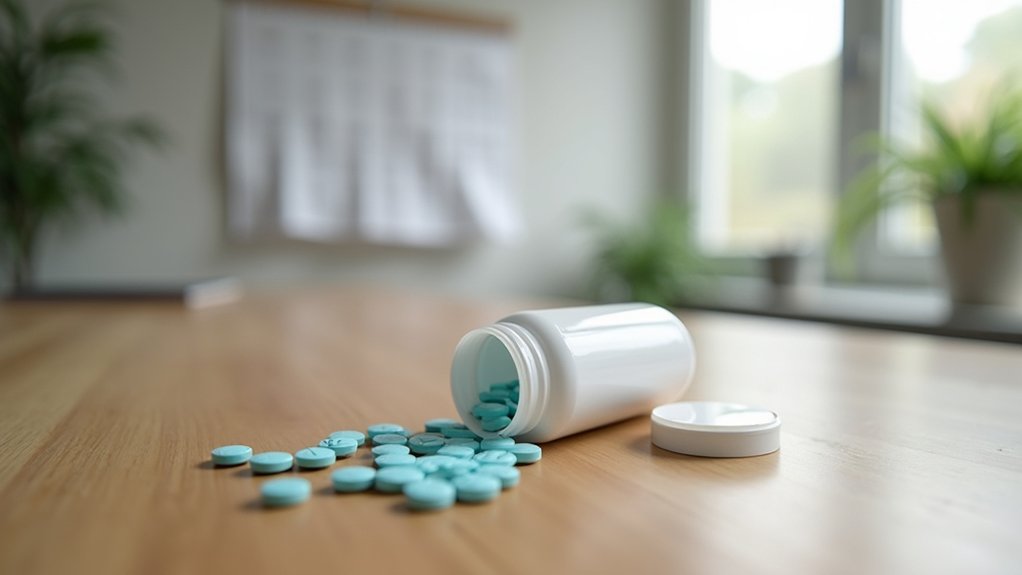Benefits of Journaling in Recovery
Addiction recovery is a journey that demands dedication, introspection, and a commitment to change. One powerful tool that can help individuals in their path to sobriety is journaling. Putting thoughts and emotions onto paper offers numerous advantages in the recovery process.
At Immersive Recovery, we explore the benefits of journaling in recovery and provide tips on effectively incorporating it into your journey to a healthier, more fulfilling life.
Journaling in Sobriety
Journaling in sobriety serves as a personal narrative of your recovery journey. It allows you to track your progress, setbacks, and the growth you experience along the way.
You create a tangible record of your emotions and experiences by putting your thoughts and feelings into words. It also provides insight into your recovery process that might otherwise be overlooked.
Escaping from Reality – A Form Of Meditation
One of the remarkable aspects of journaling is its ability to provide an escape from the chaos of addiction and the stresses of everyday life. Like meditation, journaling allows you to detach from your problems and focus on the present moment.
By dedicating time to journaling, you can explore your inner thoughts, confront your fears, and gain a deeper understanding of yourself, ultimately leading to a sense of inner peace and clarity.
Benefits of Keeping a Journal in Recovery

For many people, journaling in recovery is a powerful tool in the healing process. There are various ways to use a journal, and all of them can help in your recovery. When you journal, don’t worry if the words flow or tell a story.
Journaling aims to help process your feelings by getting them out of your head. The benefits of journaling in recovery are endless. Let’s take a closer look at some expected benefits.
Emotional Release
One of the primary benefits of journaling in recovery is its ability to serve as a safe outlet for expressing emotions. Substance use disorders often involve suppressed feelings, and journaling provides a constructive way to release and process these emotions, reducing the risk of relapse.
Self-Reflection and Insight
Journaling encourages self-reflection, allowing individuals to gain insight into their thought patterns, triggers, and cravings. By identifying these patterns, you can develop strategies to avoid or cope with situations that may lead to relapse.
Stress Reduction
Stress is a common trigger for relapse, but journaling can help manage it. Putting your worries on paper can provide a sense of relief, as you can analyze and address the sources of stress constructively.
Accountability
Keeping a journal holds you accountable for your actions and decisions. When you document your goals, achievements, and setbacks, you become more conscious of your progress in recovery, motivating you to stay on the path to sobriety.
How is Journaling Helpful in Addiction Recovery?
Journaling plays a significant and multifaceted role in addiction recovery. It offers a range of benefits to individuals seeking sobriety. Here’s how journaling can be helpful in addiction recovery.
Emotional Release
Addiction often involves suppressing emotions, which can contribute to the cycle of substance abuse. Journaling in recovery provides a safe and private outlet for expressing these emotions. Putting your thoughts and feelings on paper releases pent-up emotions, reducing the risk of turning to substances as a coping mechanism.
Self-Reflection
Journaling encourages self-reflection and self-awareness. It prompts individuals to explore their thought patterns, triggers, and cravings. By documenting these experiences, individuals gain insight into the underlying causes of their addiction. This self-awareness is critical in recognizing and addressing the root causes of substance use.
Stress Reduction
Stress is a common trigger for relapse. Journaling helps manage stress by allowing individuals to process and analyze their sources of stress. Writing about your worries and challenges can provide a sense of relief as you gain a better understanding of the issues at hand and can start developing strategies to address them.
Accountability
Keeping a journal holds you accountable for your actions and decisions. By documenting your goals, achievements, and setbacks, you record your recovery progress. This accountability can be a powerful motivator to stay committed to sobriety.
Identifying Triggers
Journaling can help individuals identify the people, places, and situations that trigger cravings for substances. By recognizing these triggers, individuals can develop strategies to avoid or cope with them effectively.
Coping Mechanism
Individuals can brainstorm and document healthier coping mechanisms to replace substance use through journaling. You can explore alternative ways to deal with stress, anxiety, and difficult emotions. This process helps build a toolbox of strategies for managing life’s challenges without resorting to substances.
Goal Setting
Setting and tracking goals in a journal provides a clear sense of purpose and direction in recovery. It helps individuals focus on their progress, celebrate their achievements, and make necessary adjustments to their recovery plans.
Documentation of Progress
Over time, a journal becomes a record of your journey to sobriety. Looking back at earlier entries can provide a sense of accomplishment as you see how far you’ve come. It can also remind you of the challenges you’ve overcome, reinforcing your commitment to a substance-free life.
Enhances Communication
Some individuals struggle to communicate their feelings and experiences with loved ones or therapists. Journaling can serve as a bridge to better communication. You can share your journal entries with a trusted friend, family member, or therapist, facilitating more meaningful discussions about your recovery.
Empowerment
The act of journaling itself is empowering. It gives individuals a sense of control over their recovery journey. It allows them to actively participate in their healing process and fosters a deeper connection with their thoughts and emotions.
How Does Journaling Help People With Substance Use Disorders?
During treatment for substance use disorder, you typically participate in various forms of therapy. In each type of therapy, journaling is highly recommended to help you through your recovery journey. But how does journaling in recovery help with substance use disorders?
Increases Self-Awareness
Journaling fosters self-awareness by encouraging individuals to explore their thoughts and feelings honestly. This awareness is crucial for recognizing triggers and avoiding relapse.
Coping Mechanism
Through journaling, individuals can develop healthier coping mechanisms to replace substance use. They can brainstorm and document strategies for dealing with cravings, stress, and other challenges in recovery.
Goal Setting
Setting and tracking goals in a journal provides a clear sense of purpose and direction. It helps individuals stay focused on their recovery journey and celebrate their achievements along the way. The way journaling in recovery helps you may be different than how it helps someone else. And at the same time, it may have benefits beyond your recovery.
Tips for Keeping a Journal in Recovery

Keeping a journal sounds easy, right? You grab a spiral notebook or find the perfect leather-bound journal to hold your thoughts, but now what?
If you need help keeping a journal in recovery, the following tips can help.
If you’re unsure what to write about, use prompts to guide your journaling. Some prompts can help you explore your emotions, triggers, or aspirations. Examples include:
If you’re unsure what to write about, use prompts to guide your journaling. Some prompts can help you explore your emotions, triggers, or aspirations. Examples include:
Consistency is Key
Make journaling a daily habit, even if you only write a few sentences. Consistency will help you track your progress effectively.
Choose the Right Time
Find a quiet, comfortable time and place to write, where you can be honest and reflective without distractions.
Be Honest With Yourself
Don’t censor your thoughts or feelings. Your journal is a safe space to express yourself without judgment.
Set Goals
Use your journal to set short-term and long-term goals for your recovery. Track your progress and adjust your goals as needed.
Use Prompts
If you’re unsure what to write about, use prompts to guide your journaling. Some prompts can help you explore your emotions, triggers, or aspirations. Examples include:
- Dear past me…
- Dear present me…
- Dear future self…
- What I wish others knew about me is…
How Being Sober Can Lead to a More Fulfilling Life
Sobriety opens the door to a world of possibilities and personal growth. It allows you to rebuild relationships, pursue your passions, and rediscover the joy in everyday life. By incorporating journaling into your recovery journey, you can maximize the benefits of sobriety.
As you gain self-awareness, develop healthy coping strategies, and set and achieve your goals, you’ll find that being sober brings you freedom from addiction and leads to a more fulfilling, meaningful life.
Stay Sober With Immersive Recovery
Whether this is your first time trying to get sober, or like many others, you have tried many times before, we can help. At Immersive Recovery, we offer a variety of treatment options to meet your unique recovery needs.
We know addictions are as unique as the person struggling. For individuals to achieve lifelong recovery, they must see their endless ability to grow. We encourage people to replace old habits with new healthy ones to empower them in their recovery.
Contact us today to find out how our programs can help you.





